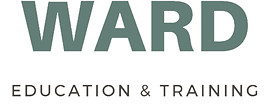
Taking your children to nursery is hugely beneficial to encourage social and emotional development. It is important that healthy foundations are built to ensure the nursery children are safe and clean while still having a fun experience.
Health and Hygiene Practices
It is extremely important that hygiene practices are implemented in nurseries to help protect the young and vulnerable children as well as the staff and the parents. Every day children from many different households are brought together in a nursery environment to play and learn together and this can pose a great risk of illness and infection to spread quickly if good hygiene practices are not upheld.
In addition, nursery children’s immune systems are not yet fully developed at this age meaning any infectious illness in a nursery setting will spread quicker than in other settings. It is vital that health and hygiene practices are maintained in nurseries to keep children healthy.
Hand Hygiene Guidelines
Hand hygiene in nurseries is hugely important because around 80% of infections are transferred through hand contact. Young children, as part of their social development and curious nature, are known to touch everything with their hands which then makes it easy for infections to spread. This includes playing with toys, handling books and food times which can easily transfer germs from one child to another.
Children need to learn from an early age how to wash their hands using the correct technique to protect their health and effectively reduce the spread of germs and infections in the nursery.

Hand washing should be a regular occurrence which helps the skin become more germ resistant and tolerant to hand cleaning products.
Not only do the children transfer germs, but it is also essential that staff and carers employ hand hygiene practices to reduce the spread of infections. Staff should sanitise hands after any contact with children that may include changing nappies, play times, cleaning up and preparing food.
Cleanings Protocols
A cleaning plan should be created to ensure staff maintain a clean and tidy space for everyone.
This will include the specific jobs that must be completed throughout the day including:
Regularly disinfecting surfaces
Daily vacuum
Floors mopped in all areas of the nursery
Regular disinfection of nappy changing areas
There must also be disposable facilities on site which are emptied properly and kept away from the children. Cleaning products can be dangerous and so they must be stored away out of the reach of children and used safely by the staff to clean surfaces, toys, play areas and floors.
The toilet facilities should also be sufficiently cleaned regularly to reduce the spread of germs and ensure the area is clean for children to use at any time. All bodily fluids such as potty contents, vomit and blood must be cleaned up immediately with the staff wearing protective gloves to deal with it safely. Clean the areas with disinfectant to eliminate bacteria and dispose of the waste correctly.
Illness Prevention and Management
As children’s immune systems have not fully developed at nursery age, illnesses and infections are easily and quickly spread. Nurseries have a duty of care to protect the health of the children by sanitising the play areas, work surfaces and anything the children touch to help prevent illness.
To manage the spread of illness, if a child or member of staff is showing signs of illness such as coughing or sneezing, the child should be collected as soon as possible and the staff member sent home. The child should then not come back to the nursery until they are fully recovered and healthy again.
Nutritional Guidelines for Nursery Children

The Early Years Statutory Framework states that children must be provided with healthy, balanced and nutritious meals, snacks and drinks.
All nurseries must obtain and record information from parents regarding the child’s dietary needs including any food allergies, dietary requirements and preferences that their child has as well as any special health requirements.
Nurseries must also be able to provide fresh drinking water which is always available and accessible to children. The EYSF also states that the kitchen area must be adequately equipped to provide healthy meals with suitable hygienic facilities to prepare food for the children. This includes sufficient sterilisation equipment for baby food. The staff must also be competent and fully trained in food hygiene to prepare and handle food.
Allergen Management
The Early Years Statutory Framework states that staff should work closely with parents to support children with allergies or intolerances. Special diet requests should be handled sensitively, perhaps including the creation of a policy which details how these allergies are managed and the procedures which should be followed.
All staff must be aware of the individual children’s allergies and there must be an understanding of which allergens are present in the food they serve to ensure it is safe for all children. The law now states that early year settings must provide details about the allergens in the food they provide.
Balanced Diet Recommendations
Meal planning in nurseries is very important to ensure children receive a balanced, healthy and nutritious diet. Nurseries must ensure that children get the right amount of energy and nutrients which support growth, development and health and wellbeing. Children shouldn’t eat too many calories as this can lead to obesity.
Children should be encouraged to eat a wide variety of foods and develop healthy eating habits early. For nursery children, a healthy balanced diet should include food from 4 groups which provide children with the essential nutrients required to help growth and development:
Carbohydrates – potatoes, pasta, bread and rice
Fruit and vegetables
Proteins – meat, fish, beans and eggs
Dairy or alternative
Nurseries have a duty of care to ensure all children are healthy, safe and cared for in a clean and hygienic environment to prevent the spread of illness.
Sources
